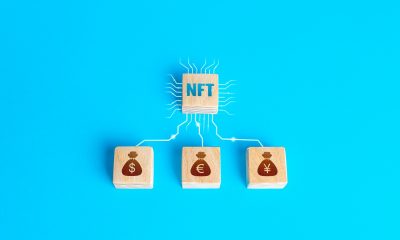In this week’s news roundup, you’ll read about crypto exchange Luno hitting a new milestone having onboarded ten million customers, Yellow Card launching in Senegal to continue building the crypto ecosystem in the country, and more.
Luno Hits New Milestone with 10 Million Global Customers
Crypto exchange Luno has announced that it has hit a new milestone with 10 million global customers. One million customers were onboarded in just six months.
South Africa remains Luno’s most active and strongest market with the exchange recording a 40% year-on-year customer growth. In fact, more than 40% of the one million customers onboarded over the last six months reside in South Africa. Additionally, South Africans roughly deposit R480 when they open a Luno account and tend to hold it for about ten months.
82% of the new customers who purchased crypto bought Bitcoin while Ethereum was purchased by the remaining 28%. The exchange allows users to purchase crypto for as little as R1 which is in line with its mission of putting the power of crypto in everyone’s hand.
“There are an estimated 300 million people using crypto worldwide as of March 2022 – a figure that is expected to grow as global markets gain better access to the crypto ecosystem. Luno aims to bring crypto to over one billion people by 2030, so reaching 10 million customers is an important milestone which supports a transition towards building a better, more fair financial system,” said Marcus Swanepoel, CEO and co-founder of Luno.
Luno’s milestone announcement comes nearly a month after it launched Luno Expeditions – its global early-stage investment arm founded to support crypto/Web3 and fintech founders.
Marius Reitz, Luno’s GM for Africa said that it took Luno five years to build a base of its first one million customers in 2017. “Luno’s growth has accelerated significantly since then. Our top two regions – South Africa and Nigeria – illustrate the high demand for crypto in emerging markets,” he said.
Yellow Card Financial Launches in Senegal to Advance the Crypto Ecosystem
 Yellow Card has announced its launch in Senegal to help advance the crypto ecosystem. The Senegal launch now brings the total number of countries the company is operating in to 16 across the African continent.
Yellow Card has announced its launch in Senegal to help advance the crypto ecosystem. The Senegal launch now brings the total number of countries the company is operating in to 16 across the African continent.
Since its launch in Nigeria in 2018, the company has been working to make it easy for anyone, anywhere in Africa to purchase crypto using cash, card, bank transfer, and mobile money.
The Senegal launch means that users will be able to purchase crypto using Senegal’s local currency (XOF Cfa).
Speaking about the launch, Yellow Card’s Country Manager in Senegal, Ines Lowe SALL, noted that the country’s market is ready for success despite it being new to crypto. She said, “The opportunities here are vast as there is a good community of local traders and crypto enthusiasts willing to trade. In addition, the market is still easy to access with few crypto companies in operation. For us, it’s about providing the best crypto exchange platform to the population and making financial inclusion for all a reality.”
Ines went on to say that the company was ready to work with the different regulators and actors in the crypto space in the decision-making processes so as to create guidelines to aid in the regulation of crypto activities in Senegal.
Cardano Launches Africa Blockchain Incubator Program to Support New Businesses
Input-Output Global, the company that oversees Cardano, has announced the launch of an incubator scheme in Africa that is meant to support new business ventures in the continent.
Dubbed Ariob, the scheme was launched in partnership with iceaddis, a pan-African business incubator developed to promote the growth of businesses that are funded by Cardano’s innovation engine Project Catalyst. Under the collaboration, Ariob will give high potential startups access to unlimited resources and venture-building expertise that will permit the select business owners to develop useful products that can solve real-life challenges in different parts of the world but with more focus on the African continent.
“Together, we want to demonstrate that the next big ideas are emerging from African countries, and we are ready to invest our resources to make that happen,” said Markos Lemma, Co-founder and Chief Executive at iceaddis.
DirectED, Hippocrades, Thrift Finance, and WADA, are some of the projects that will be joining Ariob.
To learn more about Bitcoin, download the Bitcoin Beginner’s Handbook for free.


 News1 year ago
News1 year ago
 News2 years ago
News2 years ago
 News3 years ago
News3 years ago
 News2 years ago
News2 years ago
 News2 years ago
News2 years ago
 Sponsored Posts3 years ago
Sponsored Posts3 years ago
 News2 years ago
News2 years ago
 News2 years ago
News2 years ago
 Yellow Card has announced its launch in Senegal to help advance the crypto ecosystem. The Senegal launch now brings the total number of countries the company is operating in to 16 across the African continent.
Yellow Card has announced its launch in Senegal to help advance the crypto ecosystem. The Senegal launch now brings the total number of countries the company is operating in to 16 across the African continent.
















 Central African Republic (CAR) has set up a 15-member committee that will be responsible for developing a bill on the use of cryptocurrencies and tokenization in the region.
Central African Republic (CAR) has set up a 15-member committee that will be responsible for developing a bill on the use of cryptocurrencies and tokenization in the region.







